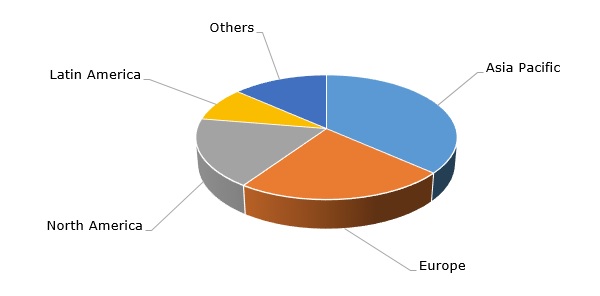Polyethylene terephthalate (PET) recycling and related policy/regulation are likely to become one of the major factors, affecting the global and regional PET markets. Due to current legislative initiatives, many PET producers may encounter significant challenges. First, these challenges will affect the products they manufacture. For instance, new EU legislature drafted in October 2018 will ban single-use polypropylene- and polystyrene-based plastic items (e.g., plastic utensils, etc.) starting from 2021. Of course, it does not directly affect the PET market, but the message is quite clear: current PET-manufacturing volumes are not in line with the existing environmental impacts. That is why different places in Europe try to diminish the consumption of PET products (in general, Europe ranks the second largest PET-consuming region in the world. For instance, Portugal implemented a successful social marketing-based programme designed to increase the consumption of local tap water instead of bottled water. The programme sought ways to facilitate the consumption of tap water as its quality was not inferior to that in bottles.
Polyethylene terephthalate (PET): structure of the global consumption by region

The same EU legislative draft also stipulated that PET plastics, such as beverage bottles, will be collected separately and recycled at a rate of 90% by 2025. It is clear that apart from the EU legislature, different countries, regions, localities and even entities will make their proprietary commitments to increase PET recycling rates and diminish its consumption. Many European countries plan to install deposit collection systems to boost PET recycling. Under the deposit collection scheme, customers will pay a deposit when they buy drinks in bottles and cans. Later, customers can claim this deposit back upon the return of PET containers. A Europe-wide system of deposit collection is also currently discussed.
There are also plans to adopt a special tax on produced or imported plastic packaging that does not include at least 30% of recycled content. For instance, the possibility of introducing such a law exists in the UK. The EU may follow the suit, which will definitely increase the demand for recycled PET. However, many PET producers already expressed concerns about the effectiveness and readiness of these measures, marking that many elements of the PET recycling systems are not in place or require sophistication.
More information on the global polyethylene terephthalate (PET) market can be found in the in-demand research report “Polyethylene Terephthalate (PET): 2019 World Market Outlook and Forecast up to 2028”.
